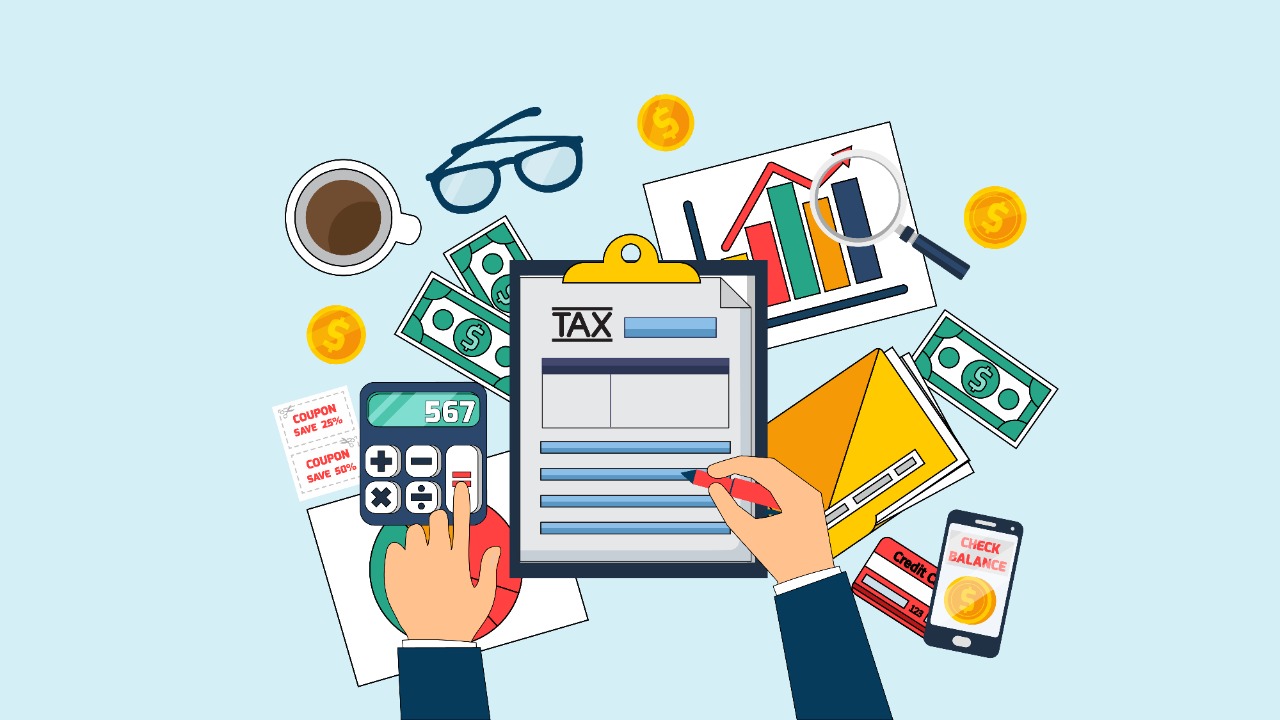
Taxes are the most significant source of revenue for the government. These may be categorized as direct taxes and indirect taxes. Direct taxes are those taxes that are charged directly on the income or revenue generated by an assesses. For example, the income from salary, income from business and profession, income from house property, income from other sources like winning from lotteries, horse races, etc. Whereas indirect taxes are those taxes where people pay indirectly to the government., for example, Service Tax, Sales Tax, Value Added Tax, etc. Thus direct taxes are a direct hit on an individual’s income whereas indirect taxes are an indirect hit on the earning capacity of a person.
The act of minimizing your liabilities by making the most effective use of the available tax benefits is an art called ‘tax planning’. To manage your finances by saving money on taxes, it's imperative that you just plan your taxes well. you'll explore and invest in tax-saving instruments like investment company plans, Insurance, etc. To plan taxes through these options, it's first necessary to know these important tax terms:
Basic Exemption Limit:
As a conscientious citizen, everyone contains a responsibility to pay taxes regularly. However, not everyone seems to be obliged to try and do so. you're required to pay taxes only if your income is taxable. How do I discover if one’s income is taxable or not, though? By knowing about the fundamental exemption limit.
A basic exemption limit is that the minimum income limit above which your income becomes taxable. Simply put, if your income is below the fundamental exemption limit, you wish not to pay any taxes. For instance, if the fundamental exemption limit is INR 2,50,000 for this year and your annual income is below this amount, you're not required to pay any taxes.
Slab Rates:
Slab rates are different levels of income per which your taxability is set. per the tax Act, 1961, every taxpayer is split into different income groups to see the rates at which their income is going to be taxed. These groups are called tax slabs. Whenever your income increases or decreases, it could also bring a change in your tax slab and thereby in your liabilities.
For example, if you're a private under the age of 60 and your annual income is above INR 5,00,000 but below INR 10,00,000, your income is going to be taxed at 20%. Individuals whose annual income is over INR 10,00,000 are taxed at 30%. To legally reduce your liabilities, you'll invest in tax-saving instruments and avail of tax benefits like deductions and exemptions available on them.
Deductions:
A deduction could be a quiet tax deduction that may be availed of to cut back taxable income. This deduction might be an income or an expenditure that you just incur. This deduction is subtracted from your gross income, to calculate your taxable income and thereby your taxability.
Gross income: INR 5,00,000
(-) Deductions under section 80 C: INR 1,50,000
Taxable income: INR 3,50,000
As per your expenses and income, there might be many deductions you'll avail of. For instance, by investing in Tax Saving schemes like 5-year Bank Fixed Deposits, some post office schemes, Public Provident Funds, pension funds, Insurance, etc. you'll avail of a complete deduction of up to INR 1.50 lakh under Section 80C and reduce your liabilities.
While trying to find instruments to take a position, consider the choices that may facilitate your avail of various deductions. As an example, you'll claim a deduction on house rent paid under Section 80GG and on your Medical Insurance under Section 80D.
Tax Exemptions:
Tax exemptions are monetary exclusions that may reduce your taxability. These exemptions either provide you tax relief, reduce tax rates, or make sure that tax is applicable only on certain portions of your income. As an example, if you pay the rent of your house, you'll avail of an exemption on your House Rent Allowance that's calculated as per your salary. While calculating your taxable income, a specific portion of your HRA is exempted from the gross income.
Gross Income and Taxable Income:
Your gross income is the total income you have earned in a very year. it's the accumulation of all the income from the subsequent income heads:
- Salary
- House Property
- Other Sources
- Capital Gains
- Business/Profession
From this gross income, your deductions are subtracted to calculate your taxable income. On this taxable income, you discover your liabilities as per different slab rates.
In a nutshell, knowing these tax terms can facilitate the calculation of your liabilities better and thereby save on your taxes. While observing your investments and expenses search for instruments where you'll cash in maximum tax benefits. For example, rather than just depositing your money in Saving Bank Accounts, invest them in Bank Fixed Deposits or a Public Provident Funds to earn better interest rates further as avail of deductions. Efficient tax planning can facilitate your pay the smallest amount of taxes additionally to managing your finances better.
